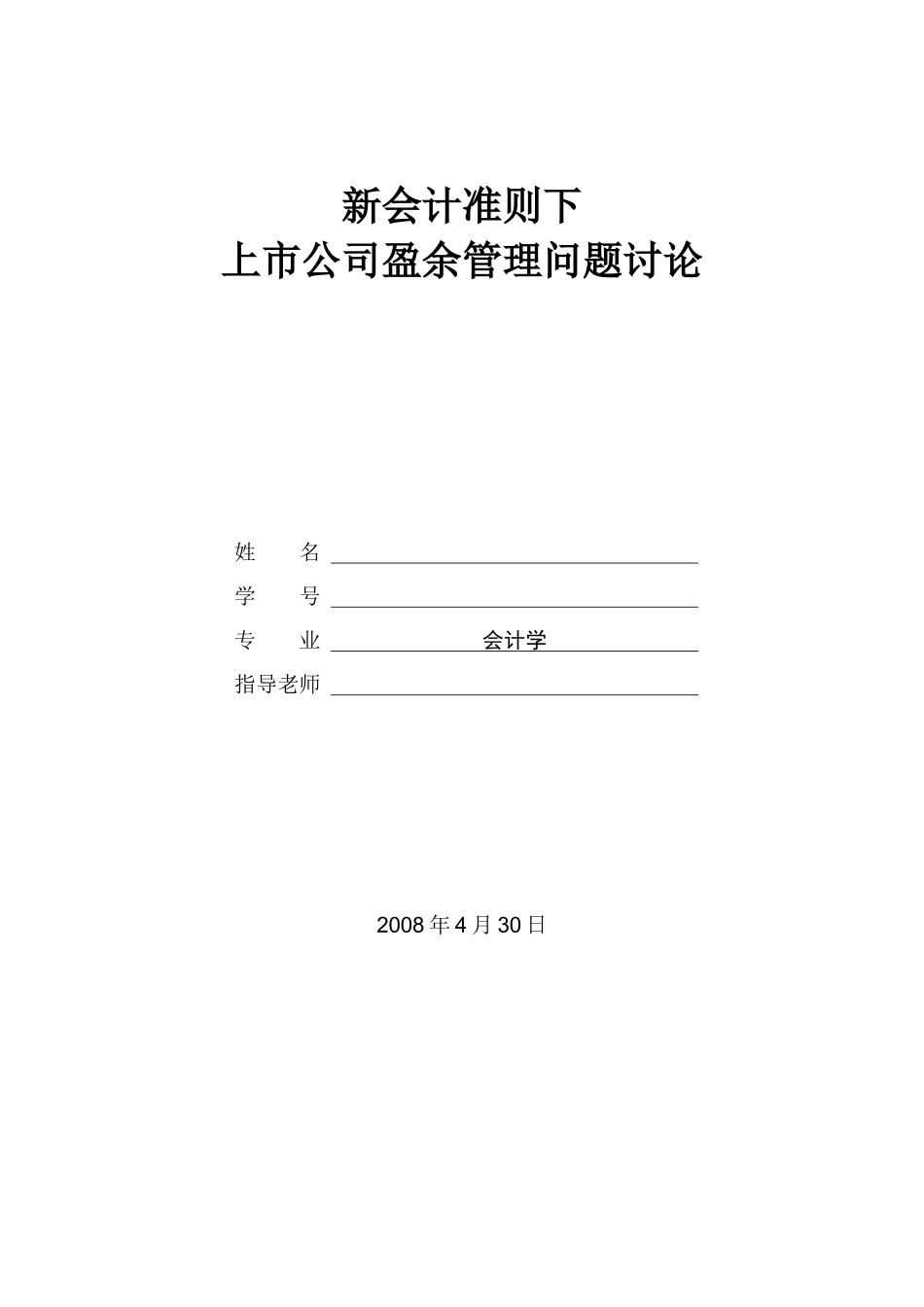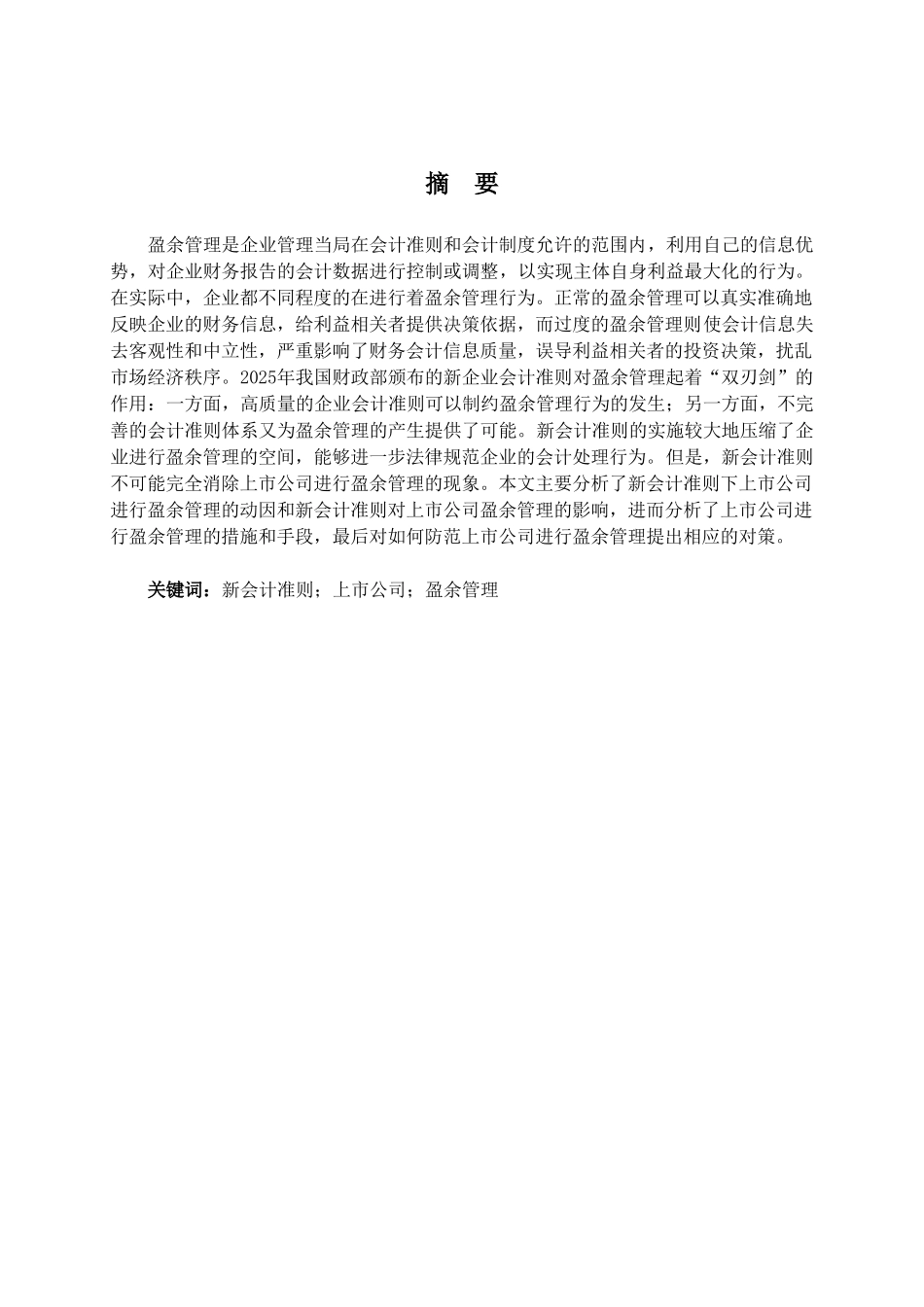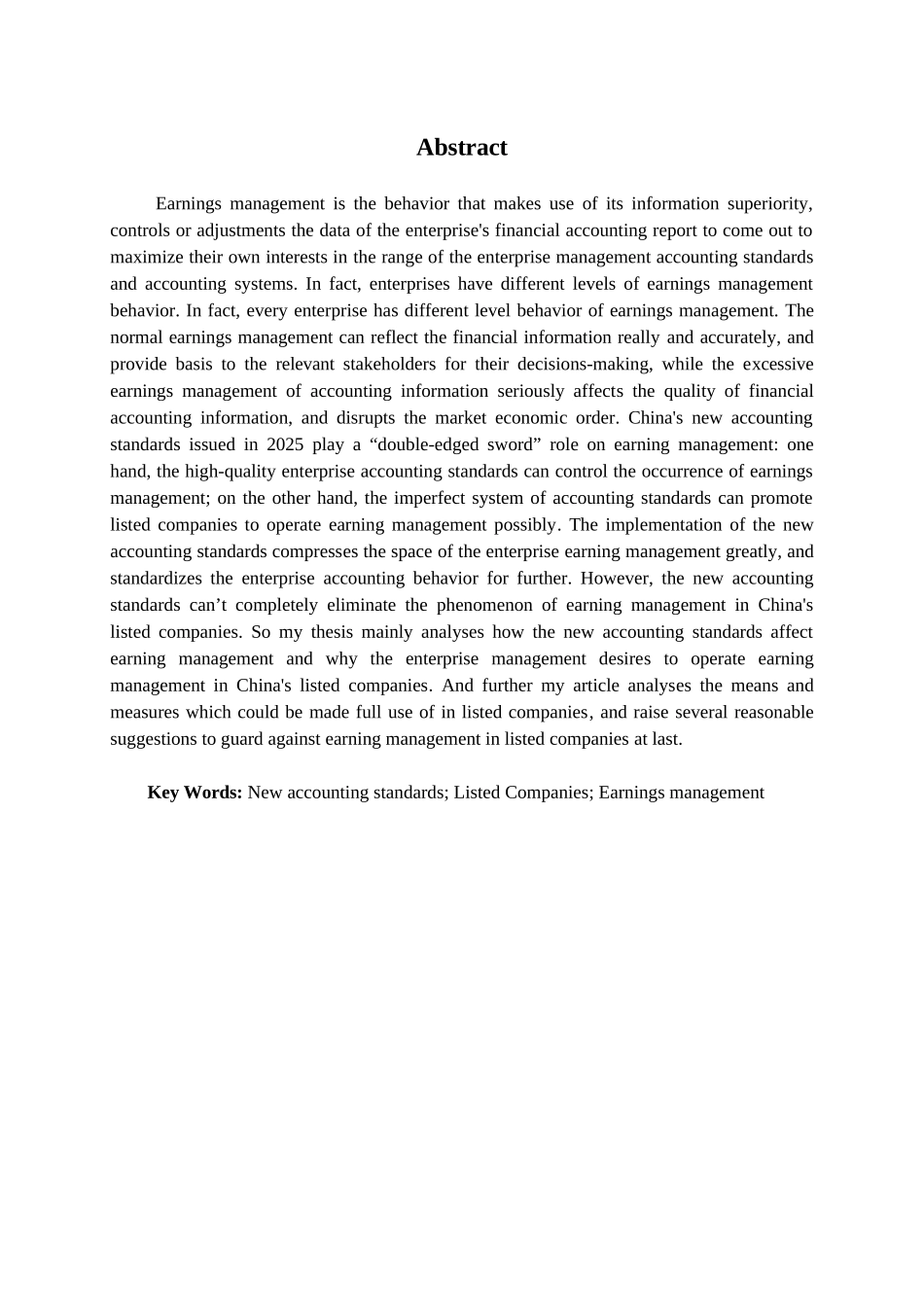新会计准则下上市公司盈余管理问题讨论姓 名学 号专 业会计学指导老师2008 年 4 月 30 日摘 要盈余管理是企业管理当局在会计准则和会计制度允许的范围内,利用自己的信息优势,对企业财务报告的会计数据进行控制或调整,以实现主体自身利益最大化的行为。在实际中,企业都不同程度的在进行着盈余管理行为。正常的盈余管理可以真实准确地反映企业的财务信息,给利益相关者提供决策依据,而过度的盈余管理则使会计信息失去客观性和中立性,严重影响了财务会计信息质量,误导利益相关者的投资决策,扰乱市场经济秩序。2025年我国财政部颁布的新企业会计准则对盈余管理起着“双刃剑”的作用:一方面,高质量的企业会计准则可以制约盈余管理行为的发生;另一方面,不完善的会计准则体系又为盈余管理的产生提供了可能。新会计准则的实施较大地压缩了企业进行盈余管理的空间,能够进一步法律规范企业的会计处理行为。但是,新会计准则不可能完全消除上市公司进行盈余管理的现象。本文主要分析了新会计准则下上市公司进行盈余管理的动因和新会计准则对上市公司盈余管理的影响,进而分析了上市公司进行盈余管理的措施和手段,最后对如何防范上市公司进行盈余管理提出相应的对策。关键词:新会计准则;上市公司;盈余管理Abstract Earnings management is the behavior that makes use of its information superiority, controls or adjustments the data of the enterprise's financial accounting report to come out to maximize their own interests in the range of the enterprise management accounting standards and accounting systems. In fact, enterprises have different levels of earnings management behavior. In fact, every enterprise has different level behavior of earnings management. The normal earnings management can reflect the financial information really and accurately, and provide basis to the relevant stakeholders for their decisions-making, while the excessive earnings management of accounting information seriously affects the quality of financial accounting information, and disrupts the market economic order. China's new accounting standards issued in...


